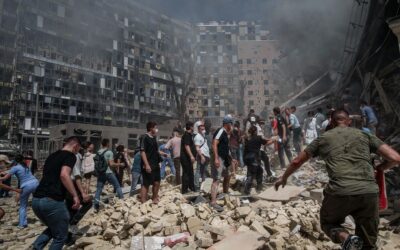 In the current extensive public discussion concerning the contribution of women to the life of the Church the name Chiara Lubich often comes up because of her spiritual, intellectual, and practical legacy. On March 14, the sixth anniversary of her passing, that challenging legacy still inspires those who remember her.
In the current extensive public discussion concerning the contribution of women to the life of the Church the name Chiara Lubich often comes up because of her spiritual, intellectual, and practical legacy. On March 14, the sixth anniversary of her passing, that challenging legacy still inspires those who remember her.  In Pretoria, South Africa, Dr Kobus Gerber, General Secretary of the Dutch Reformed Church, will reflect on her contributions to ecumenical dialogue. Similar events will take place in Perth and Melbourne, Australia. In view of the upcoming Synod on the Family, Chiara’s passion for the family will be the central focus of events in Luxembourg and Spain. In Perugia, Italy, Mayor Waldimiro Boccali will name a street after a teenager inspired by Lubich, Blessed Chiara Luce Badano. A similar ceremony will take place in Porto Alegre, Brazil, where an exhibit, “Chiara Lubich, Protagonist of New Times” will be mounted in the Hall of the Municipal Council.. There will be book presentations, concerts, and other cultural events throughout Europe, the Middle East, the Americas, and Africa. In small communities and in large metropolises many will pause to thank God for the gift of Chiara Lubich to the human family. In Sydney, Australia Cardinal George Pell will lead the community celebration, as will Archbishop John Dew in Wellington, New Zealand, and Archbishop Jan Graubner in Olomuc, the Czech Republic. The Muslim Noor Center in Toronto, Canada, will host a discussion of her contribution to interreligious dialogue.
In Pretoria, South Africa, Dr Kobus Gerber, General Secretary of the Dutch Reformed Church, will reflect on her contributions to ecumenical dialogue. Similar events will take place in Perth and Melbourne, Australia. In view of the upcoming Synod on the Family, Chiara’s passion for the family will be the central focus of events in Luxembourg and Spain. In Perugia, Italy, Mayor Waldimiro Boccali will name a street after a teenager inspired by Lubich, Blessed Chiara Luce Badano. A similar ceremony will take place in Porto Alegre, Brazil, where an exhibit, “Chiara Lubich, Protagonist of New Times” will be mounted in the Hall of the Municipal Council.. There will be book presentations, concerts, and other cultural events throughout Europe, the Middle East, the Americas, and Africa. In small communities and in large metropolises many will pause to thank God for the gift of Chiara Lubich to the human family. In Sydney, Australia Cardinal George Pell will lead the community celebration, as will Archbishop John Dew in Wellington, New Zealand, and Archbishop Jan Graubner in Olomuc, the Czech Republic. The Muslim Noor Center in Toronto, Canada, will host a discussion of her contribution to interreligious dialogue.  On March 20, at Rome’s Pontifical Urbaniana University, several prominent representatives from a range of world religions who knew Chiara will share their impressions at a conference entitled “Chiara and Religions, Moving Together Towards the Unity of the Human Family.” The event will conclude in Castel Gandolfo with an interreligious symposium among Christians and faithful of other religious traditions, including Jews, Muslims, Hindus, Buddhists, Shintoists, and Sikhs. On this, her sixth anniversary, the preliminary phase of the Cause of Beatification of Chiara Lubich will begin. On December 7, 2013 Focolare President Maria Voce made the formal request to open the process to Raffaello Martinelli, Bishop of Frascati. Voce commented, “This invites all of us to greater holiness, to build it up each day in our daily lives, in order to allow a ‘holiness of the people’ to emerge, which is what Chiara always sought to promote.”
On March 20, at Rome’s Pontifical Urbaniana University, several prominent representatives from a range of world religions who knew Chiara will share their impressions at a conference entitled “Chiara and Religions, Moving Together Towards the Unity of the Human Family.” The event will conclude in Castel Gandolfo with an interreligious symposium among Christians and faithful of other religious traditions, including Jews, Muslims, Hindus, Buddhists, Shintoists, and Sikhs. On this, her sixth anniversary, the preliminary phase of the Cause of Beatification of Chiara Lubich will begin. On December 7, 2013 Focolare President Maria Voce made the formal request to open the process to Raffaello Martinelli, Bishop of Frascati. Voce commented, “This invites all of us to greater holiness, to build it up each day in our daily lives, in order to allow a ‘holiness of the people’ to emerge, which is what Chiara always sought to promote.”
Love gives meaning to everything
Love gives meaning to everything




0 Comments